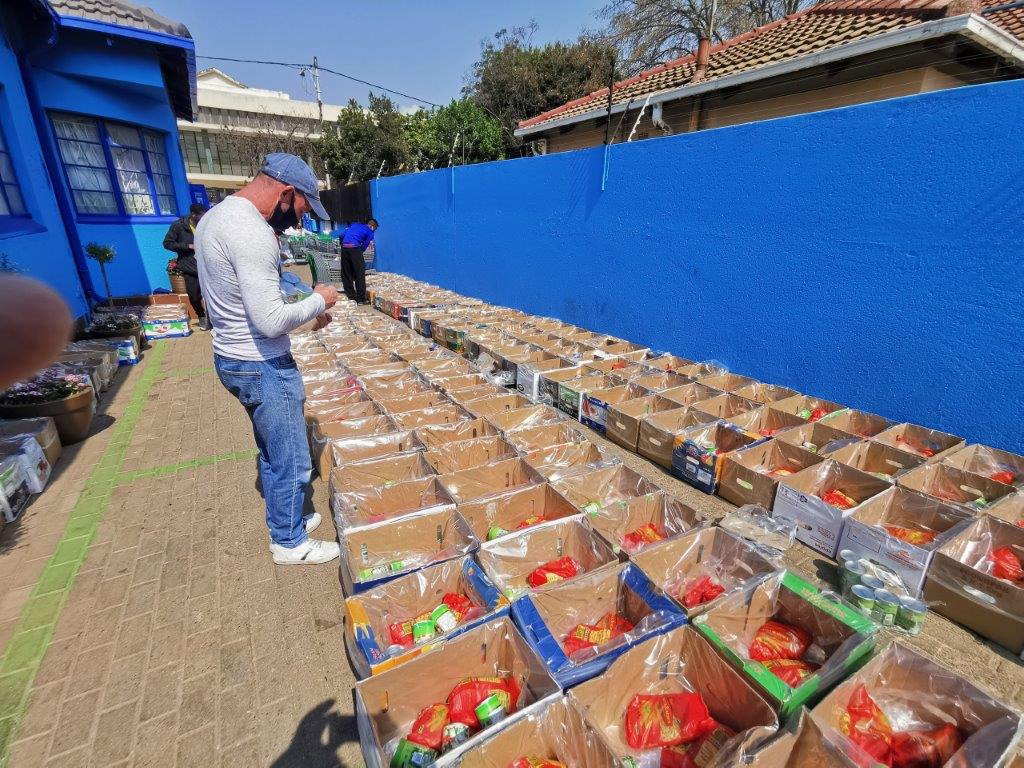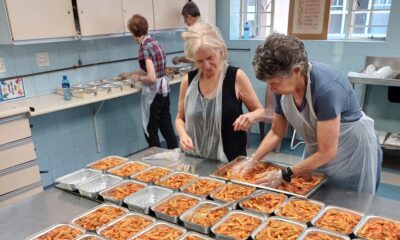
Community

Welfare organisations under pressure as poverty levels rise
Published
2 years agoon
With rising inflation causing the steepest repo rate hike in almost 20 years, those who depend on welfare to make ends meet are hardest hit, and the organisations that assist them are working harder than ever.
The Reserve Bank increased the interest rate 75 basis points in July, meaning that the repo rate is now at 5.5% and the prime lending rate 9%. Economists predict that inflation will probably remain above 7% for the foreseeable future, while rates will likely continue to rise. It exacerbates South Africa’s already staggering poverty crisis, and, speaking to community organisations, it’s clear that the Jewish community is far from immune.
As the largest Jewish welfare organisation on the African continent, the Chevrah Kadisha (the Chev) is at the frontline of increasing needs. “The current inflationary climate means those we’re already helping need more assistance and those that were just managing on their own can no longer do so,” says Saul Tomson, Chev group chief executive.
“The worse the situation becomes with the rising costs of food, fuel, and other necessities, the more people turn to the Chev. We have to be there to assist as there’s often nobody else and there are no government interventions available. The population we serve is vulnerable, and most don’t have family in the country.”
Rising economic pressure is exacerbating an already challenging situation caused by COVID-19. The pandemic led to increased costs to protect the Chev’s 1 000 residents and increased welfare demands as a result of people losing their jobs and businesses.
In the past financial year, says Tomson, financial assistance to community members increased by nearly 30% – including COVID-19-pandemic welfare – totalling R57.1 million compared to R46.5 million the previous year.
“Since the start of COVID-19, we have supported an additional 17% of Jewish families, and this remains the situation,” says Tomson. “We now reach nearly 900 families monthly, providing almost R60 million per annum in financial assistance.”
The Chev spends close to 10% of its annual R313 million budget on catering, producing about 2 500 meals a day for residents at Sandringham Gardens as well as for residents at allied Chev facilities, Jewish patients in hospital, and food parcels for those in need.
“Between January 2022 and now, we have experienced enormous increases in the costs of food,” says Tomson. “Increases in the cost of staples such as bread, oil, poultry, hake, and beef have resulted in the Chev now paying about R80 000 a month more today than we did in January this year – about R1 million more per annum. This is in spite of the fact that we benefit from bulk buying and special donor-supplier discounts.”
Jewish Community Services (JCS) fulfils a similar mandate in Cape Town. A non-profit welfare organisation which offers services including social work, material relief, a food bank, accommodation, employment programmes and more, JCS has also observed an increasing need for support.
“More and more people are approaching JCS for assistance,” says Executive Director Hazel Levin. “There are those who are approaching JCS because of loss of income or jobs. We even recently had an evicted community member come to us off the street.”
As was the case at the Chev, JCS also faced added pressure during COVID-19. It spends about R300 000 on food a month. A total of five hundred and fifty people are assisted through the JCS Tikvah Foodbank as well as through the hot meals on wheels made at Highlands House.
The dwindling Jewish community in Cape Town, which numbers about 13 000 people, many of whom are elderly, poses a challenge. “Everybody is going for the same pot,” says Levin. “The donors are depleting and exhausted, so we need to look for international support and other alternatives. We’re in a crisis, and we know that interest rates are going to hit us soon. We have to stick to firm financial criteria in terms of who we support.”
JCS Financial Manager Bevan Buck believes that we’ll feel the real impact of rising inflation and interest rate hikes only in the next three to six months. Those who are just making it or who aren’t making it will be the worst impacted, he says.
Johannesburg’s leading, independent Jewish food fund, Yad Aharon & Michael, provides food assistance to 700 families in need in the Johannesburg Jewish community.
“The number of people applying for food assistance increases weekly,” says Jody Eberlin, who oversees Yad Aharon’s marketing and food projects. “We’ve had 110 new applicants sign up between September 2021 and July 2022. This number will increase before yom tov and beyond, as we’re seeing only the tip of the iceberg in terms of how the economy and after-effects of COVID-19 are limiting people’s ability to earn an income.”
With rising prices, increasing numbers of recipients, and reduced donations as all South Africans take financial strain, NPOs like Yad Aharon have had to increase their fundraising and negotiate with suppliers for lower prices and food donations.
The fact that the elderly make up much of South Africa’s Jewish community poses a challenge, says the Union of Jewish Women’s (UJW) chairperson, Ingrid Koor. “People are living a lot longer but their money isn’t living as long as they are, and they have no income stream,” she says. “A lot of Jewish people are suffering, much more than in the past.”
Among its many projects, the UJW has been providing cooked kosher mobile meals for more than 50 years. It currently provides about 1 500 meals a month to about 100 recipients. “Recipients have to be over 75, in financial need, and unable physically to cook for themselves,” Koor says.
“Fundraising is a lot harder because all the NPOs are suffering, so you have to think out the box to get people to choose to give to you – there has to be an emotional connection,” she says. “Before you never needed a fundraiser or a marketing company, but you have to have that now to compete against everybody else. You have to spend more to make more.”










